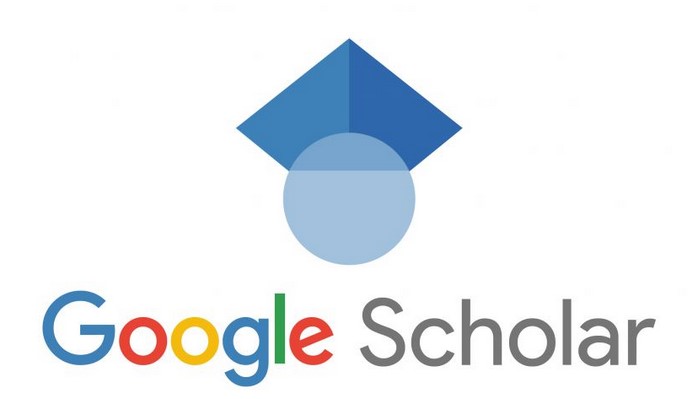Keywords
ICT in education; hybrid; micro teaching; reflective learning model
Document Type
Article
Abstract
This research aims to develop a hybrid reflective micro-teaching model. The research method used is a type of research and development referring to the Borg and Gall R&D Cycle. The research results from reflection sheets indicate that some students could perceive the teaching for themselves. This is evidenced by the correspondence between friend’s assessments and the results of their reflections. However, some students seemed less attuned to what was being taught. Peer observations and reflection on students’ learning indicate a promising potential for improvement in students’ selfassessment. For instance, some students reflected “good” in planning and implementing materials but couldn’t demonstrate their abilities accordingly. Limited trials of the Reflective Microteaching model indicate a tendency for students to respond positively to the model. Observations using various instruments also show an inclination toward better understanding and increased awareness of learning planning and implementation. Nonetheless, there are still discrepancies between reflection results and friends’ observations.
First Page
9
Last Page
19
Page Range
9-19
Issue
1
Volume
20
Digital Object Identifier (DOI)
10.21831/jc.v21i1.68070
DOI Link
https://doi.org/10.21831/jc.v21i1.68070
Recommended Citation
Faisal, E. E., Safitri, S., Dianti, P., Lestari, D., & Sulkipani, S. (2024). Development of a hybrid reflective micro learning model based on ICT in Micro Teaching courses. Jurnal Civics: Media Kajian Kewarganegaraan, 21(1), 9-19. https://doi.org/10.21831/jc.v21i1.68070
References
Afriyani, P. (2013). Pelaksanaan tugas guru profesional di Sekolah Menengah Atas Negeri Kota Pariaman. Jurnal Bahana Manajemen Pendidikan, 1(1), 376-461. https://ejournal.unp.ac.id/index.php/bahana/article/view/2716
Asmadawati. (2014). Perencanaan pengajaran. Darul ‘Ilmi, 2(1), 1-13.
Brookfield, S. (1995). Becoming a critically reflective teacher. JosseyBass Inc.
Fitria, H. (2018). Penerapan model pembelajaran kooperatif terhadap hasil belajar siswa pada mata pelajaran Geografi di SMA Negeri 10 Palembang. Jurnal Dosen Universitas PGRI Palembang. https://jurnal.univpgri-palembang.ac.id/index.php/prosiding/article/view/1559
Gunawan, G., Kristiawan, M., Risdianto, E., & Monicha, R. E. (2021). Application of the zoom meeting application in online learning during the pandemic. Education Quarterly Reviews, 4(2). https://ssrn.com/abstract=3819839
Haqien, D., & Rahman, A. A. (2020). Pemanfaatan zoom meeting untuk proses pembelajaran pada masa pandemi covid-19. SAP (Susunan Artikel Pendidikan), 5(1).
Herrera, J. C. Vielma, and F. M. La Rivera, (2018). “Impact of microteaching on engineering students’ communication skills,” Int. J. Eng. Educ, 34 (6), 1768–1775.
Imran, M. S. (2013). Micro teaching to improve teaching method: an analysis on students. perspectives. Journal of Research& Method in Education, 1(4), 69-76. 10.9790/7388-0146976
Indiati, I., & Sumardiyani, L. (2010). Pengembangan model reflective microteaching untuk pembentukan calon guru profesional. AKSIOMA: Jurnal Matematika dan Pendidikan Matematika, 1(1/Maret).
Jomah, O., Masoud, A. K., Kishore, X. P., & Aurelia, S. (2016). Micro learning: a modernized education system. Brain Broad Research in Artificial Intelligence and Neuroscience, 7(1), 103-110. Available online: http://www.edusoft.ro/brain/index.php/brain/article/view/582
Koross, R. (2016). Micro teaching an efficient technique for learning effective teaching skills: pre-service teachers’ perspective. IRA-International Journal of Education & Multidisciplinary Studies, 4(2), 289-299. DOI: 10.21013/irajems.v4.n2.p7
Mardiana, T., & Purnanto, A. W. (2017). Google form sebagai alternatif pembuatan latihan soal evaluasi. URECOL, 183-188.
Mashuri. (2012). Pengembangan profesional keguruan dalam mata kuliah micro teaching. Jurnal Ilmiah Didaktika, VIII(1), 80-97. DOI: 10.22373/jid.v13i1.466
Otsupius, I. (2014). Micro-teaching: a technique for effective teaching. An International Multidisciplinary Journal, 8(4), 183-197. DOI: 10.4314/afrrev.v8i4.15
Retelj, A., & Puljić, B. K. (2016). “We need more practice!” how future teachers evaluate their experiences with micro-teaching? Revija za Elementarno Izobraževanje, 9(4), 139- 154. UDK: 378.147:811.112.2
Rohana, R., & Ningsih, Y. L. (2018). Pengaruh penerapan model pembelajaran reflektif terhadap kemampuan pemecahan masalah dan komunikasi matematis mahasiswa calon guru. Jurnal Dosen Universitas PGRI Palembang.
Saban, A., & Çoklar, A. N. (2013). Pre-service teachers’ opinions about the micro-teaching. TOJET: The Turkish Online Journal of Educational Technology, 234-240.
Salsabila, U. H., Habiba, I. S., Amanah, I. L., Istiqomah, N. A., & Difany, S. (2020). Pemanfaatan aplikasi quizizz sebagai media pembelajaran ditengah pandemi pada siswa SMA. Jurnal Ilmiah Ilmu Terapan Universitas Jambi| JIITUJ|, 4(2), 163-173.
Sholeh, M. (2017). Perencanaan pembelajaran mata pelajaran geografi tingkat SMA dalam konteks KTSP. Jurnal Geografi, 4(2), 129-137. Available online: https://journal.unnes.ac.id/artikel_nju/JG/10
Sudiyatno, S., & Nuryanto, A. (2016). Model pembelajaran microteaching untuk calon guru SMK RSBI. Jurnal Pendidikan Teknologi dan Kejuruan, 18(2), 189-210. 10.21831/jptk.v18i2.9328
Sukmadinana, Nana S. (2007). Metode penelitian pendidikan. PT Remaja Rosdakarya.
Verawati, V., & Desprayoga, D. (2019, March). Solusi pembelajaran 4.0: hybrid learning. In Prosiding Seminar Nasional Program Pascasarjana Universitas PGRI Palembang (Vol. 12, No. 01).



